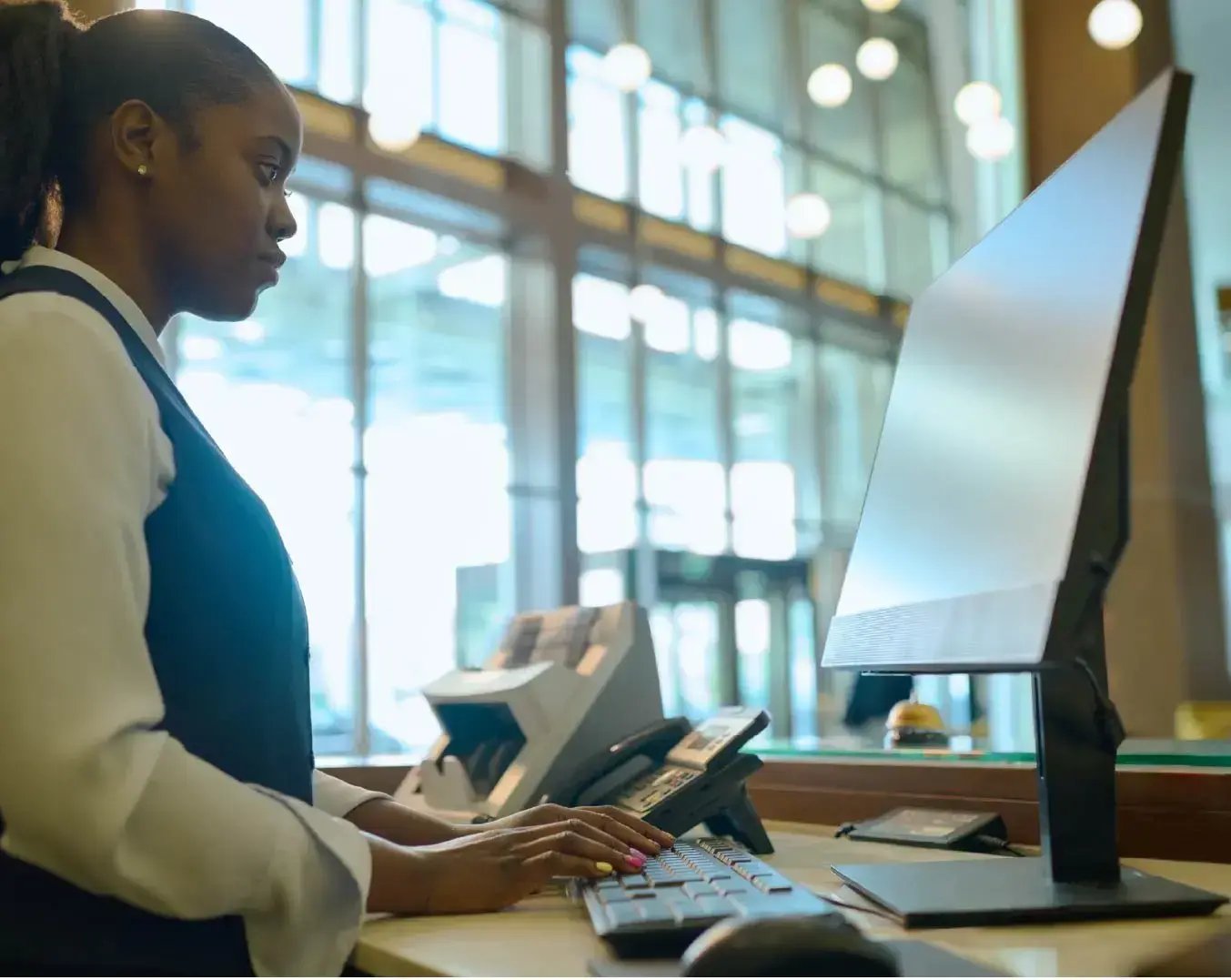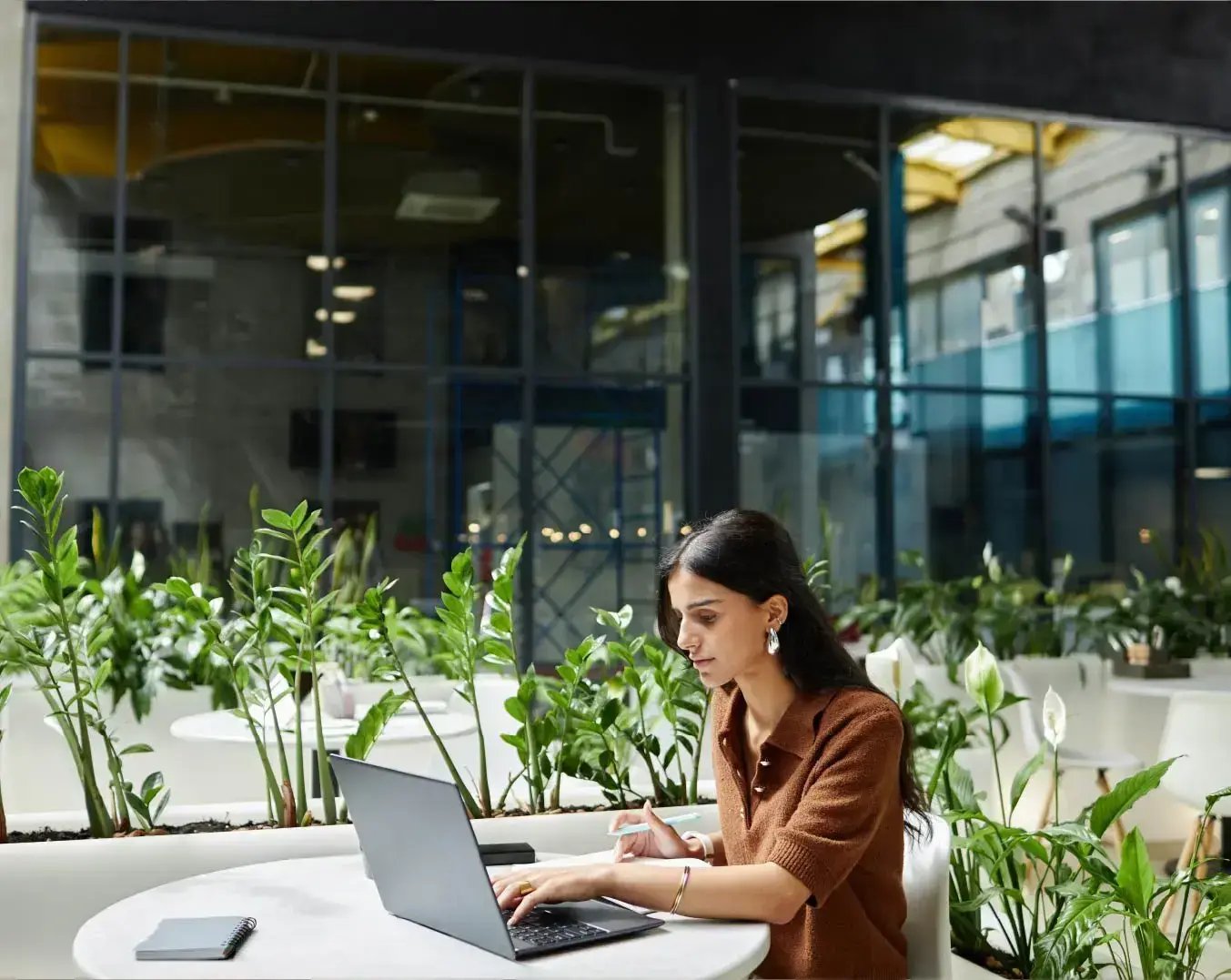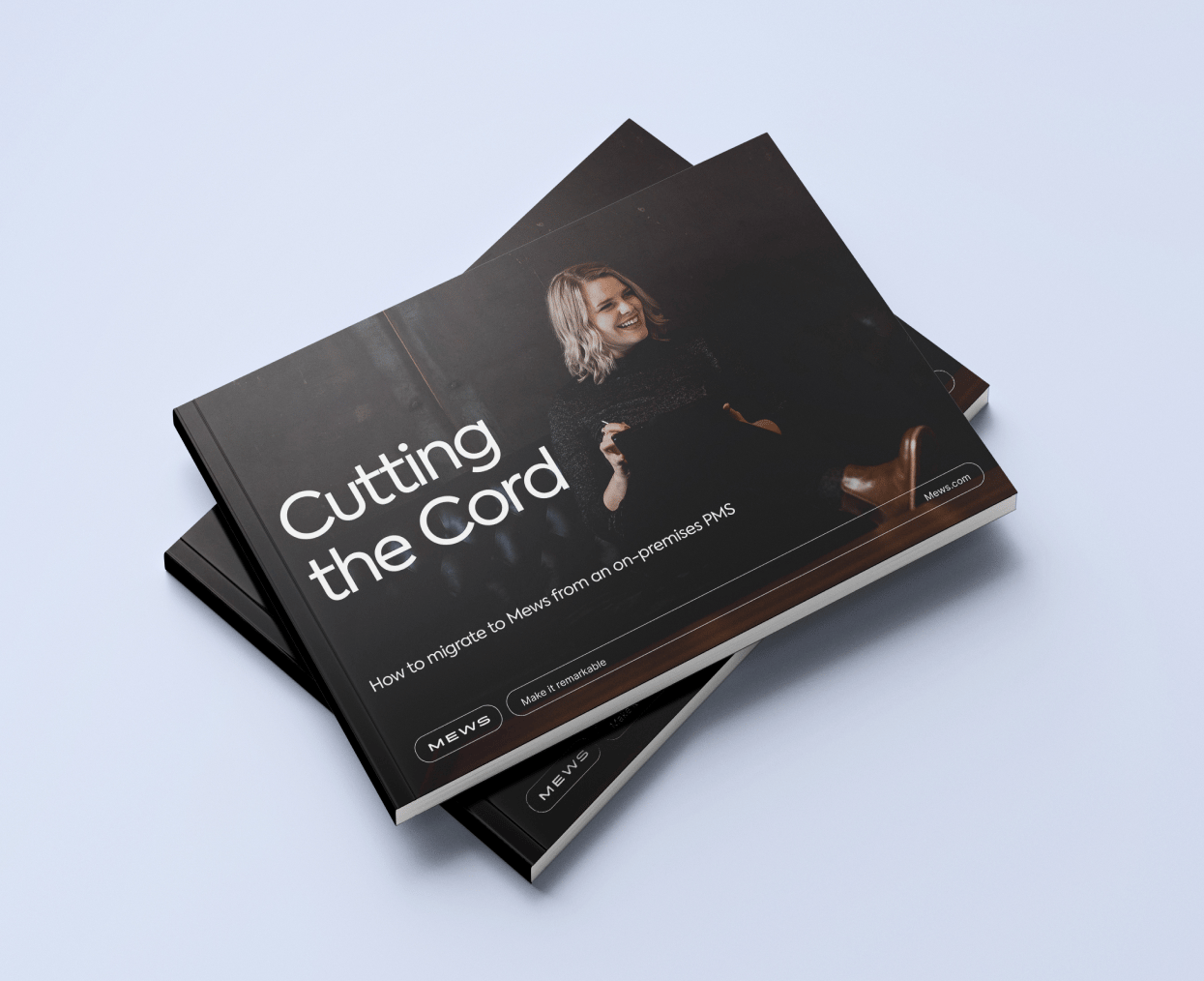What is a PMS integration?
A PMS integration connects your property management system (PMS) with other tools and systems to streamline operations and ensure seamless collaboration. These systems might include channel managers, customer relationship management (CRM) tools, payment gateways, keycard or access systems, point-of-sale (POS) systems, and accounting software.
The primary goal of PMS integration is to automate processes and improve operational efficiency. By enabling these systems to work in sync, hotels can achieve smoother workflows and stay competitive in the fast-paced hospitality industry. The more advanced and connected your systems, the better positioned you are to adapt and succeed.

Why are hotel property management system integrations important?
Hotel property system integrations are important because they allow you to control all your hotel operations and procedures from one place. This ensures no overbookings, simplifies the reservations process, and helps your hotel remain competitive. Plus, you can ensure real-time updates for room availability across platforms.
What are the benefits of PMS integrations?
There are many benefits of PMS integrations, such as reducing the potential for overbookings, boosting visibility, working more efficiently, increasing guest satisfaction, and supporting scalability. Let’s take a closer look at each benefit in detail.
Reduce potential for overbookings
Managing everything in one place makes it easier to avoid overbookings, which often occur when availability doesn’t sync up in real time. Especially when working with several channels, it can be difficult to process and update reservations everywhere.
Integration helps by syncing your PMS with your channel manager, allowing both tools to work simultaneously and in real time to ensure availability is up to date. The channel manager communicates the booking to the PMS, so the room is blocked and cannot be booked on another channel.
Boost visibility
Not having to manage channels individually means you can spread your distribution efforts more effectively. With one tool, you can update availability across multiple channels without doing it one-by-one. The more channels you are on, the more people you can reach, which helps increase your hotel’s visibility and boost occupancy rates.
Work more efficiently
Working with a PMS that integrates with all your other tools is much more efficient. You don’t have to manage multiple logins and platforms, and making changes becomes easier. It also helps reduce administrative workload, saving time and resources, and enhancing staff satisfaction.
Increase guest satisfaction
While PMS integrations and guest satisfaction may not seem directly related, having integrated tools makes it easier to offer top-notch service. You can address guest queries and data more efficiently and personalize stays with integrations like simplified payment processes and smart tech that adjusts room temperature and even music preferences.
Scalability
Integration supports scalability by connecting with third-party tools that can be easily added as your hotel grows. This flexibility allows your hotel to expand its capabilities without overhauling existing systems.

What are two-way PMS integrations?
Two-way PMS integrations allow tools to exchange data bidirectionally, meaning data flows both ways in real time, ensuring seamless communication. This means that when changes are made in one system, they are instantly reflected in another. Two-way integrations are usually powered by APIs that enable this data exchange.
Types of hotel PMS integration
There are many different types of hotel PMS integration, such as channel management integration, point of sale systems, CRMs, and more. Understanding these different types of integration will help you make an informed decision about which PMS is right for your hotel.
Channel management
Channel management integration syncs your PMS with the channel manager, creating a seamless connection between your PMS and Online Travel Agencies (OTAs). When a new booking is made through an OTA, it updates in the PMS. Similarly, when a property manager changes availability or rates, these updates are instantly sent to the OTA.
Point of sale systems
Integrating the PMS with restaurant and bar POS systems ensures that any charges made on-site, such as at the hotel’s restaurant, bar, or pool, are automatically reflected in a guest’s room bill. This facilitates transactions within the property, driving incremental revenue.
With POS integration, all transactions are easily accounted for on the final bill, making payments so streamlined that guests don’t even realize they are spending money; it becomes part of the experience.
Customer relationship management
PMS and CRM integration occurs when the PMS sends guest history data and preferences to the CRM, which then updates the PMS with marketing offers and loyalty program details. This improves and personalizes your hotel’s communication and marketing efforts, boosting the return on marketing investment.
Payment gateways
Payment gateway integration allows seamless and secure online payments to be processed directly from your hotel’s website. This means guests can easily and securely make reservations, and the more direct reservations you receive, the better for your hotel’s bottom line.
Keycard or access systems
Keycard integration and access systems allow guests to manage access to your hotel and their rooms quickly and easily, whether using a digital key or a regular room card. This can also enable digital key entry, making it easy for guests to come and go as they please, enhancing guest satisfaction.
Conclusion
We’ve explored PMS integrations and why they’re important. For hotels aiming to streamline operations and efficiently manage various processes, finding the right integrations with their PMS is crucial. This ensures the most seamless procedures possible.
Whenever possible, choose a PMS that offers the integrations you need to work effectively. This allows your hotel to adapt to market changes and stay on top of the latest trends in marketing, advertising, and personalization. The more your hotel can monitor and adapt to these trends, the more it can remain relevant in a competitive landscape.
Download our guide How to Migrate to Mews from an On-premises PMS

